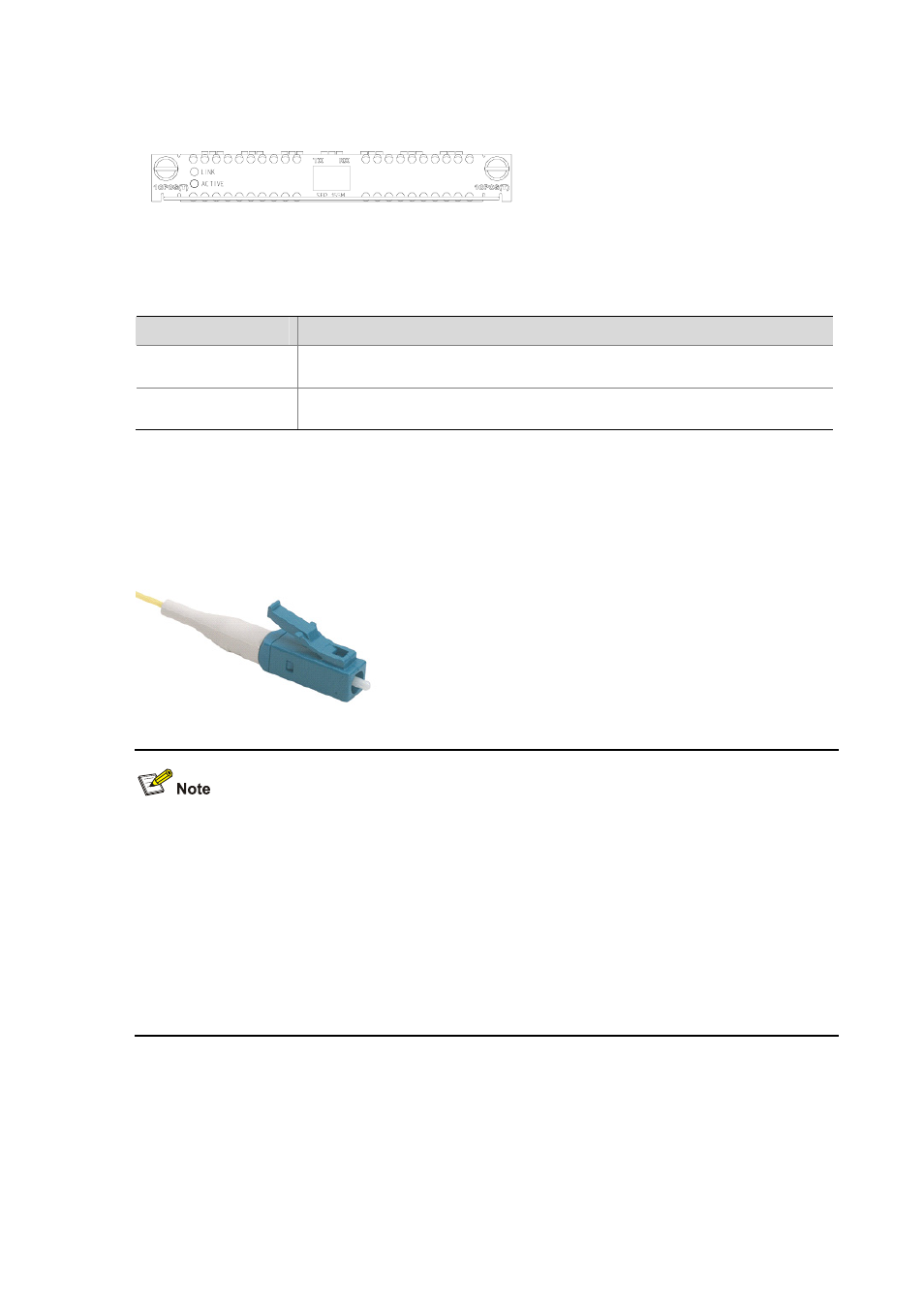Interface optical fiber, Connecting the interface optical fiber – H3C Technologies H3C MSR 50 User Manual
Page 134

3-30
Figure 3-32 MIM-1CPOS(T) front panel
The following table describes the LEDs on the MIM-1CPOS(E)/MIM-1CPOS(T) panel.
Table 3-29 LEDs on the MIM-1CPOS(E)/MIM-1CPOS(T) panel
LED
Description
LINK
z
OFF means no link is present;
z
ON means a link is present.
ACT
z
OFF means no data is being transmitted or received;
z
Blinking means data is being received or transmitted.
Interface optical fiber
The MIM-1CPOS module can only be connected with an optical fiber cable with an LC-type fiber-optic
connector.
Figure 3-33 LC-type fiber-optic connector
Fiber-optic connectors, according to ITU, are passive components used to stably but not permanently
connect two or more optical fibers. They are indispensable to a fiber-optic communications system in
the sense that it allows add/drop connections between optical channels.
There are many types of fiber-optic connectors, such as:
z
FC: Round fiber-optic connector with screw thread
z
ST: Round plug-in fiber-optic connector
z
LC: Square fiber-optic connector
z
MT-RJ: Square fiber-optic transceiver connector
Connecting the interface optical fiber
Step1 Insert the SFP module into the corresponding slot.
Step2 Locate the Rx and Tx optic interfaces on the module. Use two fiber cables to connect the MIM-1CPOS
to the peer device: Rx to Tx and Tx to Rx.
